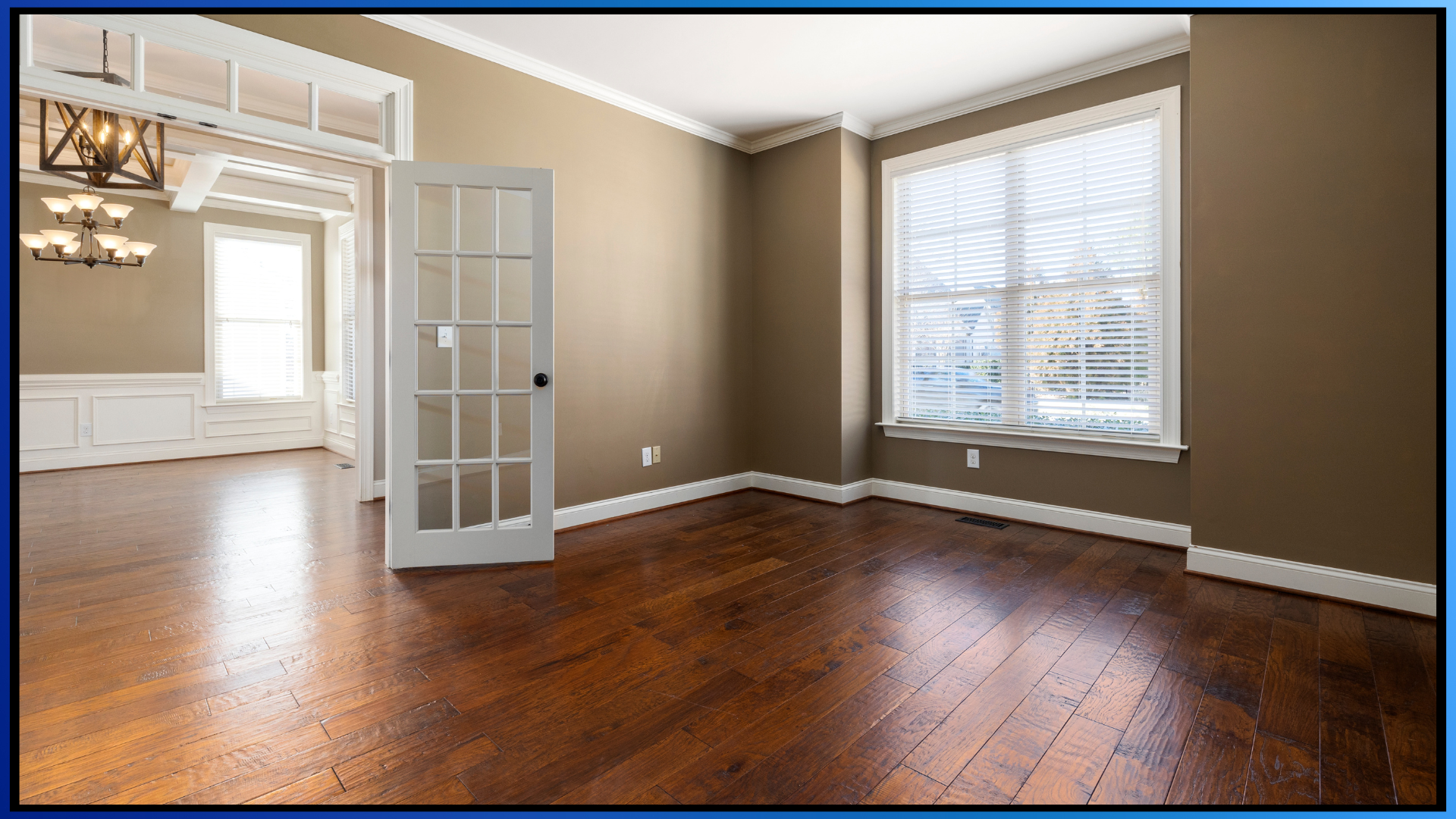10 HOME IMPROVEMENT PROJECTS TO KNOW BEFORE MOVING INTO A NEW HOUSE
Anonymous
Friday, April 7, 2023

Congratulations on your new home! We all know that moving into a new house is stressful, and the last thing you probably want to do is add more things to your to-do list. However, it’s actually best to tackle some home improvement projects before all your moving boxes and furniture get in the way. So if you want to save money, time, and hassle down the road, here are 10 home improvement projects to consider before making the big move.

1. Change the locks
First and foremost, it’s important to keep your family and your new home safe. So before moving in, be sure to call a locksmith and have your locks changed. You never know who might have a spare key and it just isn’t worth taking the risk. When the locks are being installed, don’t forget the back door and garage door locks, as well as any sheds or other buildings on your property.You can also tackle this yourself if you want and possibly save a little money. You can typically buy new locks, often as a set for multiple doors, from your local hardware store. Just follow the directions and you’ll have new locks set up in no time.
2. Remove popcorn ceilings
Older homes may have textured “popcorn” on the ceiling, an unsightly older trend that makes the interior of your home look dated. It’s important to note that these types of ceilings may contain asbestos – which if it does, would require working with a professional asbestos removal company to eliminate it from your home. It doesn’t matter if you own a house in Atlanta or an apartment in San Francisco, if your home was built before the 1980s and has popcorn ceilings, it’s highly recommended to have a professional test and then remove it.3. Paint the interior
Adding a fresh coat of paint is a simple and affordable home improvement project that can add color and bring new life into your space. It also helps defend your home’s surfaces from wear and tear. Whether you do the work yourself or hire someone to do it, it’s a lot easier to paint an empty room. Plus, redoing your walls before moving day means you don’t have to live with the smell of drying paint in your home.Remember, choosing paint isn’t just about the color. The finish of your paint, from matte to high gloss paint, can dramatically change the look of a room. There are also different types of eco-friendly paint options – some of which have low to no VOC. If you have a paint color in mind, bring home samples with a few different finishes, to see which you prefer.

4. Add storage options in closets
You may wish to replace wooden clothing rods with aluminum ones or install shelving and shoe trees to maximize storage space. Pantries and storage closets may need extra shelving and organization too. If you have a tight space, additional shelves up to the ceiling can help you keep organized and your space less cluttered.“Decluttering your old home before you move and also organizing your packing according to the rooms in your new space, will result in a much easier unpacking process, a faster new home set up, and a better organization system after move in,” notes My Space Reclaimed, a professional organizer based in Dallas, TX.
5. Make electrical upgrades
You can do these upgrades anytime, but everything is easier to get to in an empty room. If you’re moving into an older home, especially one built in the mid-‘90s or before, consider installing extra electrical outlets or upgrading the existing ones. Many older homes don’t have the electrical capacity for the number of electronics and powerful devices that many people use today. Additional outlets in your rooms can make it easier to arrange furniture, including computers, speakers, gaming systems, and light fixtures, and will make room for everyone to plug in their phones. Consider also upgrading to programmable thermostats and light fixtures.6. Replace the flooring
If you’re moving into a brand-new home, you may not need to make any improvements to your floors. However, if you’ve bought a home with carpet or tile that you hate or wood floors that need to be refinished, this is a perfect time to make changes. If you put it off, you will have to deal with moving all of your furniture out of the way. And who wants to move furniture twice? There are many different unique and eco-friendly flooring options to consider from reclaimed hardwood floors to concrete. As the flooring is being updated, the contractors can also replace baseboards and any other trim work to match.
7. Install fencing
The house you’ve just purchased may not have adequate fencing for your pets or children. If so, this is a great time to consider adding it. Installing fencing can provide safety for your family, conceal a swimming pool or hot tub, reduce traffic noise, protect landscaping, give you privacy, increase your home’s curb appeal, and much more. It’s also a desired feature by many homebuyers. So when it comes time to sell your home years down the line, this home improvement project may increase its value and make it stand out in the local housing market.8. Call the pest control
Even if you don’t see bugs, mice, or other pests in your home, that doesn’t mean they aren’t there or that they won’t decide to move in. You can prevent ants, roaches, and other insects from making your home theirs by bringing in a professional pest control company. Here’s something you may not realize – if your neighbors all have chemical pest barriers, and you don’t, colonies of insects may relocate to your house, simply because it’s more accessible.You may also wish to have quarterly inspections for larger pests like mice or squirrels if you live in an area where they’re prevalent. Besides the “ick” factor, these animals can be very destructive to your house, creating holes in the walls or roof, ripping out insulation, and leaving droppings that can cause disease.
9. Deep clean
Whether you do it yourself or hire a service, all homes can benefit from having every nook and cranny scrubbed, especially the bathrooms and kitchen. Don’t forget to include cleaning the cabinets and drawers, too. This may also be a good time to install shelf liners and any drip protectors to preserve the life of the cabinets.10. Remodeling an entire room
If you’ve ever remodeled part of a home, especially an area that is used often as a kitchen or bathroom, you know that it can be a major inconvenience. You could end up cooking meals outside or sharing one bathroom with the entire family. So if you already know you’ll be doing some remodeling, consider doing so prior to move-in, whether it's simple fixes like replacing outlet covers or updating window treatments, or larger fixes like changing out an old door, switching out old windows, or updating a ceiling fan. Also, before moving forward with your remodel / home improvement, be sure to discuss with your contractor if your home improvement project will require a building permit.
Categories:
Free Report
We would like to hear from you! If you have any questions, please do not hesitate to contact us. We are always looking forward to hearing from you! We will do our best to reply to you within 24 hours !
